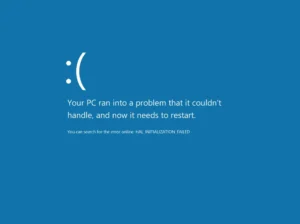Have you ever wondered why some YouTube channels consistently receive a million views in a short amount of time and go viral with their content?
The truth is that they are familiar with the platform and use it to help visitors find their material more rapidly.
In fact, they know how to employ the proper keywords in their video descriptions and titles so that someone looking for information on a specific topic can find them quickly.
What’s the good news?
These approaches can be applied to you as well. This guide will teach you how to do just that.
You could just keep uploading videos to your channel and hoping for the best, but knowing YouTube SEO is a definite approach to boost your results and reach more people.
Here’s all you need to know about YouTube keyword research and how performing it correctly may help your channel gain more views.
First and first, what is the distinction between SEO and YouTube SEO?
You’re probably thinking that what we just said sounds eerily similar to search engine optimization (SEO).
And you’d be completely correct. The terms YouTube SEO and traditional SEO are interchangeable.
However, you must take a step back and consider YouTube as a separate entity from Google or Bing.
It’s a search engine, however it only searches for videos rather than conventional stuff.
As a result, it has its own set of best practices that video creators must understand, embrace, and execute in order to achieve the greatest outcomes.
This will make it easier for your video to appear in YouTube search results, resulting in a steady stream of traffic and more video views.
Isn’t that correct? That’s not all, though
It’s also worth noting that YouTube material is given a lot of weight in Google’s search engine rankings.
Given that the search engine behemoth owns the largest video content platform, it’s not a stretch.
You can help your videos rank higher on search engines outside of YouTube by making sure they’re optimized with the right keywords, titles, and descriptions.
What is the definition of a YouTube keyword?
A YouTube keyword is almost identical to any other keyword.
It’s a single word or phrase that describes the content of a specific film.
What’s more, it closely matches what visitors type in the search box when they’re looking for content on a given topic.
That’s why planning ahead of time and developing content around a single emphasis keyword is crucial.
You may personalize your video to the needs of your target market and audience after you know what they want to view.
In the end, this results in: An increase in page views.
There are more likes.
More people are signing up.
Also, your whole channel will receive a greater reaction.
In fact, we’d go so far as to say that YouTube keyword research is the cornerstone of your success when it comes to building a successful YouTube channel.
How Does YouTube Keyword Research Help You Get More Views?
So, how might keyword planning assist you in increasing traffic to your channel?
It’s critical to understand what people are looking for in terms of the topic you’re creating a video on in order to ensure that viewers can find it.
Let’s face it, we’re all in this together
There’s no way to watch everything at once, with over 500 hours of new content being posted to YouTube every minute.
As a result, your audience will have to be selective about what they consume on the platform.
When you take the effort to match your videos to their demands through keyword research, you’ll find it much easier to get in front of them and ensure your material appears before that of another channel.
More importantly, you’re assuring them that you’re providing them with the most relevant information or amusement.
They won’t have to waste time attempting to figure out what your videos are about if they can see what they’re about from a properly labeled title or an accurate description.
Finally, this can help you gain more views and establish an audience that is actually interested in what you’re offering.
How to Find the Best Keywords for YouTube Using YouTube Keyword Research?
Let’s look at how YouTube keyword research works now that you know why it’s crucial.
Here are a few crucial actions to take to guarantee you’re receiving the proper keywords for your topic and target audience.
Step one is to choose a theme
Selecting a theme is the first step in obtaining the perfect keywords for your YouTube video content.
While it may seem illogical to do this before beginning your study, the goal is to have a starting point.
Keep your topic wide, but make sure it’s something you know your audience would be interested in learning about – and something you can effectively depict in a video.
Step two: use YouTube’s autocomplete feature to find what you’re looking for
When doing YouTube keyword research, the next thing you should do is use YouTube’s autocomplete feature.
This will usually give you a good indication of what people are looking for and how it connects to the topic you want to address in your video.
If the issue is over saturated with content or does not appear to have an autocomplete response, you should consider if it is worthwhile to pursue.
Step three is to look into the competition
Take a look at a couple of the videos that have a lot of traffic once you have a solid understanding of the topic and how effectively it is already covered on YouTube.
What are the keywords they’re using? Are there any that catch your attention?
Make a list of the ones that make the most sense for the type of video material you’ll be creating.
Step four: employ a keyword research tool for YouTube
Now that you’ve studied what’s already on the platform, it’s time to finalize your primary and secondary keywords using a YouTube keyword research tool.
The way you utilize these tools differs depending on which one you use, but the essential thing to remember is that you’re seeking for terms and phrases that are closely related to the subject of your movie.
To cut down your list to five or ten, look for those with a high average number of views or subscribers.
What are the Best Keyword Tools for YouTube?
Knowing what tools are available to make the process easier is the first step in finding the best YouTube keywords.
Here are a few to try to make your research process go more smoothly.
YouTube Metrics
When it comes to determining search intent, the first place to look is YouTube Analytics.
This will frequently provide you with insight into what your current audience is doing and what they wish to see in future films.
The rest of your keyword research can then be based on related topics.
Google’s most recent trends
The majority of video makers are unaware that Google Trends includes a separate tab dedicated to YouTube content.
This can give you an indication of how popular a specific subject is, as well as any connected searches.
If you’re doing keyword research, this is useful because it shows you what relevant keywords to look for to combine with the ones you’re already using.
Keyword Planner by Google Ads
We now know that this is a generic SEO technique that isn’t only for YouTube.
But remember how we said there’s a lot of overlap between basic Google search and the video platform?
You can strive to develop films that will show up in general search if there are enough people searching for your keywords, which still corresponds to a larger audience and more views.
It’s also free to use, which is ideal if you’re just getting started or are on a tight budget.
Keyword Research Tool by BuzzSumo
The Buzz Sumo Keyword Research Tool is particularly useful because it allows you to switch between related keyword searches and analytics.
This means you may type in a search term and see what additional terms relates to it.
Similarly, you can examine the content of any YouTube channel. It’s a fantastic two-for-one strategy for selecting the best keywords for your content.
YouTube’s Keyword Tool
The generic name may lead you to believe that this is a YouTube-developed tool, but it is simply a powerful third-party choice.
The YouTube Keyword Tool analyzes specific search terms and returns hundreds of similar choices.
You can also analyze traffic for specific terms in the premium edition of the application.
Tube Buddy
Tube Buddy is another fantastic YouTube keyword research tool.
This browser extension makes finding and selecting the perfect keywords for your videos, descriptions, titles, and other content a breeze.
It also has an auto translator tool for content in several languages, which is useful if you want to reach out to a larger audience.
VidIQ
VidIQ, hailed as one of the greatest paid YouTube keyword research tools on the market, making it incredibly simple for content creators to conduct the research required for video marketing success.
It has a lot of useful tools, such as keyword templates that come in helpful when making many movies, a keyword translator, and a lot more.
They’re also YouTube accredited, with an online learning academy to help you get the most out of the site.
Other Important YouTube SEO Pointers to Keep in Mind
After you’ve done your YouTube keyword research and are ready to submit your video, what happens next?
There are a few things you should keep in mind in order to reap the most benefits from all of your hard work.
Include the keyword in both the title and the description.
Although it probably goes without saying, we feel compelled to mention it here.
This will make it simple for Google and YouTube to figure out what your material is about.
Use the term as close to the beginning of your title as possible without making it look forced.
Your major keyword should be the name of your file.
Even if you don’t believe it matters, matching the name of the file you upload to your chosen YouTube keyword is critical.
This offers the platform a solid notion of what your content will be about, which might make ranking for specific niche terms easier.
Closed captions should be used.
Search engines can crawl closed captions.
This means that you can boost your visibility simply by including the term in your video and then turning on this option.
Isn’t it amazing?
What’s more, you’re making it easier to reach your audience, who may rely on captions to appreciate your material.
Distribute your content
Working on off-page backlinks is just as crucial as working on traditional SEO.
Make sure you’re posting your videos on social media sites like Facebook, Twitter, and Pinterest, as well as anywhere else that makes sense.
To speed up the process, include your keyword in the post description.
Finally, as part of your video marketing strategy, conduct YouTube keyword research.
You can assist improve traffic and develop your channel audience by taking control of your descriptions and employing certain terms and phrases.
The great thing about mastering SEO is that the abilities can easily transferre from one platform to another.
You can repeat the process on practically any digital marketing channel if you understand how to find keywords that match what people are searching for and have a plan to create quality content on that topic.
Even that just launched social networking platform.










